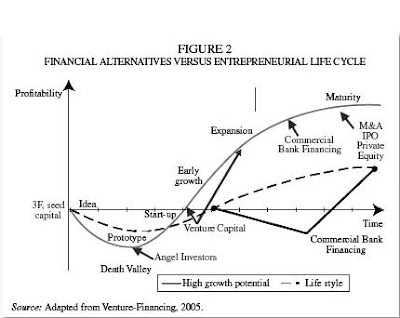This is a follow up on the post ‘The ABC of Investing in a
young business. I gave a brief outline of various pieces that contribute to the
puzzle of a successful business. Whereas the end game is making money in
investment in a company, management plays a great role to achieve this. Last
year we saw CMC motors suspended from the NSE as management/ directors had
gotten greedy and neglected their fiduciary duties to the investors. Uchumi is
a company that was almost brought to its knees and only the intervention of the
government to aid the company from collapse could it be able to provide the
turn around. The above cases are extreme, but there are times where passive
management contributes in a market leader being overtaken by technology and
competitors. In 1990s, Kodak was the largest manufacturer of camera and film,
so huge was it in this market that they coined a name off its product-The Kodak moment. Management led the
company to its collapse, they did not only ignore the digital camera they
invented but also neglected the rise of technology in photography. Recent
companies like Blackberry, Sony among others, market leaders in their own right
have lost their place on the board to aggressive and innovative companies; a
direct result of effective management.
So what are the characteristics needed in management of a
company you want to invest in, or as a business owner what characteristics are
expected from me when I am raising capital? These attributes traverse across
the companies regardless of the stage on growth, and whether they are
multinationals or simple local startups.
Honesty and integrity-
A simple lie, overstatement of figures, miscommunication can result in lack of
trust between an Investor and the business owner. Huge deals have been
abandoned at the last moment as trust was broken between the two parties. A
story is told of two investors who went to tour a milling company that was
seeking investment. As they were doing the rounds checking the physical assets,
they met a worker busy packaging the flour. One of them stopped to ask her how
many packets she packed per day, she replied- I don’t know, I was hired the
other day and was told to look busy as some Big shots were coming over and she
was instructed to look busy. That company lost credibility in an instant.
Experience- This
still remains a very vital aspect. An investor gains comfort from the fact that
the person running the business has vast experience in the industry. For an
exporting company, the person will need to know his way round packaging,
transport, payment arrangements with the buyers etc. That been said a
substitute to this is when the person has extensive knowledge in a particular
field that it supersedes experience if they are no experienced competitors in
that industry.
Achievement-This
is not necessarily tied to the business though it is an advantage. What the entrepreneur
has accomplished at a personal level show the kind of drive he possesses. They
have the spark that lights a dark room, high achievers and an investor is
comfortable betting big on them
High energy Level-The
making of a great company requires a lot of hard work input, the ability to go
the extra mile. Entrepreneurs with high energy level are able to consistently
operate at high capacity. It is a case of 1% inspiration and 99% perspiration
Motivation- Ask any
great runner what pushes him/her past to run faster after clocking 38km, the
prize awaiting them at mark 42km. Every business owner should identify what
he/she wants to accomplish, why he chooses to do. Making money is a great
motivator but focusing only on that opens the door for greed. Every professional
is driven by a cause; a doctor to treat people, a farmer to feed people. To maximize the
cause with profits is a perfect blend. You should be able to answer the
questions- Why do you want to do all of this, knowing it is going to take time
out of your life? Why is it you want to get involved in this difficult
situation?

